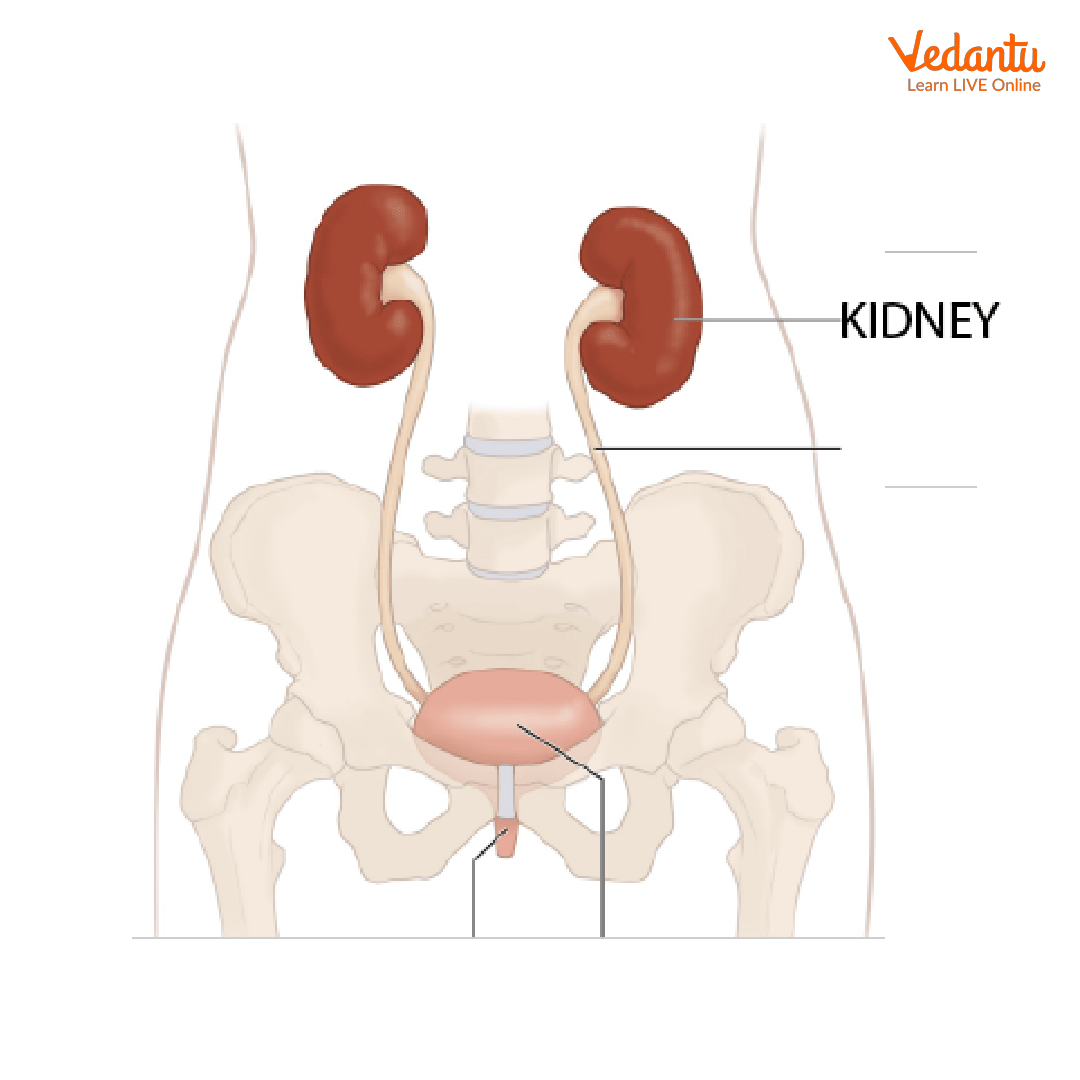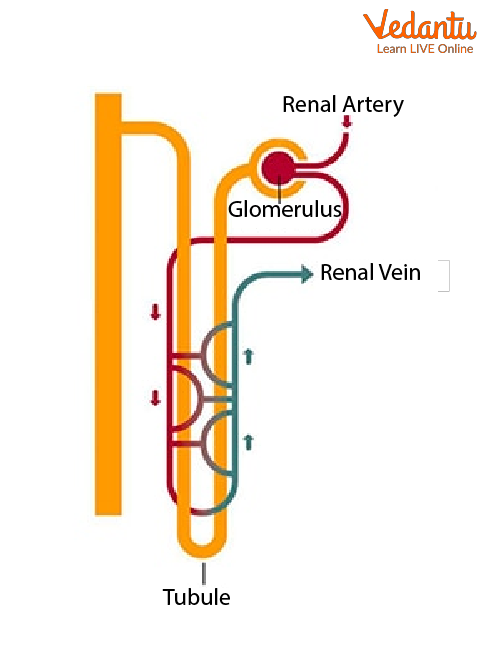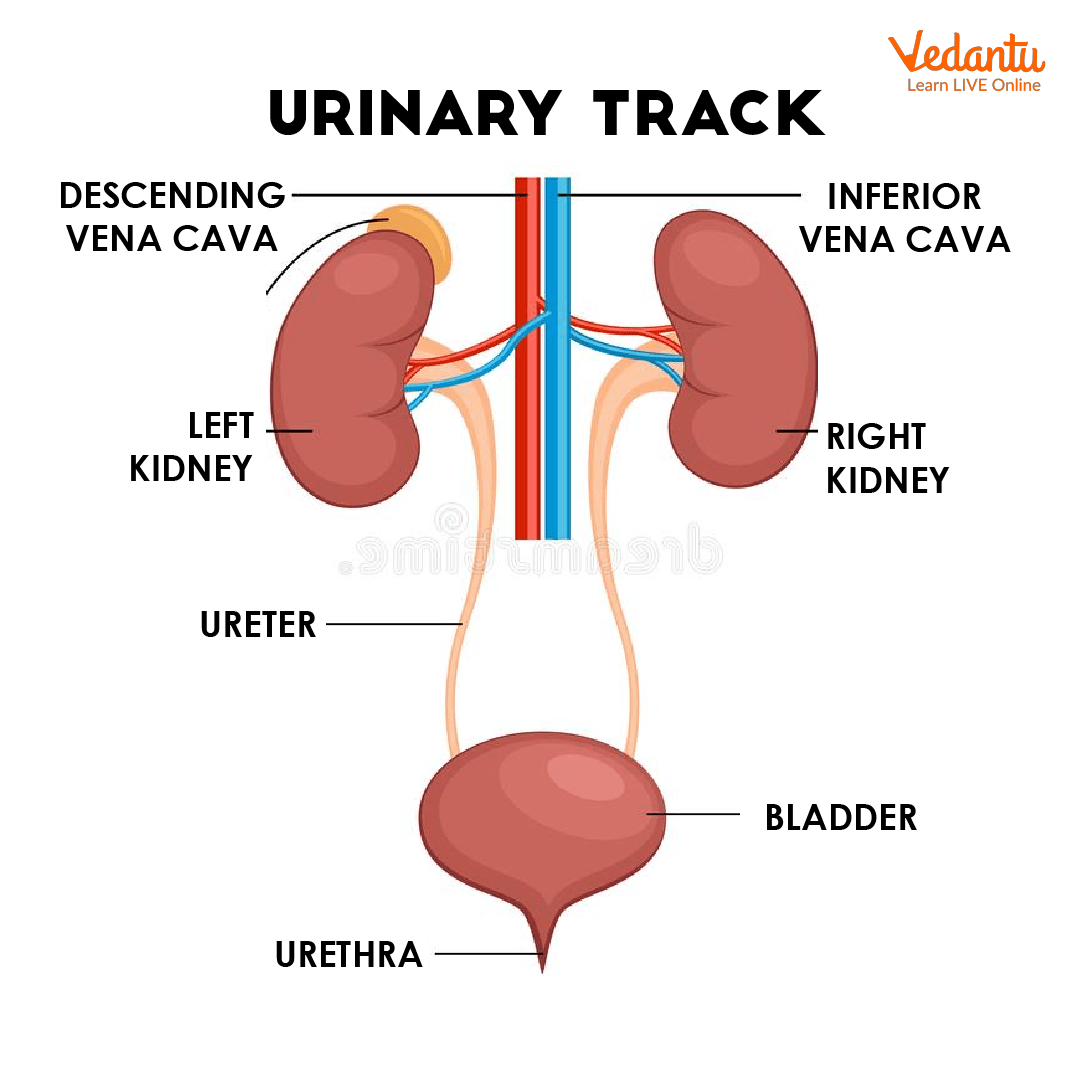




What are Kidneys?
Excretion is an important life process for the functioning of the human body. Kidneys form a key part of the human body’s excretory process. They are bean-shaped organs about the size of fists (10-12 cm) with a width of around 5-7 cm. They weigh about 115-175 grams. Kidneys are essential organs for the filtration of blood in our body and for the process of excretion. They filter out unwanted materials from the body in the form of urine and return the clean blood for circulation.
Where are Kidneys Located in the Body?
The kidneys are located below the diaphragm on either side of the spine. The part of the body above the diaphragm is called the chest and the lower one is called the abdomen. Kidneys are located in the abdomen area and are protected by the rib cage.

Location of the kidneys
Interesting Facts About Kidneys
Apart from balancing the amount of fluid in our body, and getting rid of waste materials from the blood, there are a lot of other facts that you should know about kidneys.
Although most human beings are born with two kidneys, our bodies can sustain even with the help of one.
Each kidney has approximately 1 to 2 million nephrons.
The position of the kidneys in our body is not symmetrical, our right kidney is located a little lower than the left one.
Our right kidney also tends to be a little smaller than our left one.
Kidneys also help to maintain our body’s blood pressure by responding to a hormone called aldosterone which is produced in the adrenal glands.
Kidneys also produce Vitamin D which promotes healthy bones.
Kidneys also control the production of red blood cells.
The two kidneys together filter around half-cup of blood every minute, approximately 180 L of blood per day.
How do Kidneys Clean the Blood?
Each kidney consists of around a million nephrons. The nephrons are called the filtering unit because they consist of a filter, called the glomerulus, and a tubule.

A Nephron
The glomerulus filters the blood and the tubule returns the essential substances to our blood and removes the waste products. The blood enters our kidneys through the renal artery. It then reaches the nephron through smaller and smaller blood vessels.
In the nephron, it is filtered with the help of the glomerulus and the tubule. The filtered blood is then sent from the kidneys through the renal vein. The urine produced by the kidneys after the filtration process is stored in the Bladder through the Ureter. From the Bladder, it is excreted out of the body via the Urethra.
Learning by Doing
Q1) Which of the following organs stores urine after filtration of blood?
Ureter
Urethra
Renal artery
Bladder
Ans: d. Bladder
Q2) Which of the following is the filtering unit of kidneys?
Tubule
Renal vein
Nephron
Glomerulus
Ans: c. Nephron
Solved Questions
1. Explain the functioning of nephrons.
Ans: Nephrons filter out the blood in a two-level process. Each nephron has a glomerulus and a tubule. The blood after entering the nephron goes to Glomerulus – a tangle of tiny blood vessels. Glomerulus has thin walls which allow the waste materials, water, and smaller molecules to pass through the tubule. Essential minerals such as proteins stay in the blood vessel. As the blood moves through the tubule, other essential minerals and water are reabsorbed by a blood vessel that runs along the tubule. The remaining waste and fluid make urine.
2. Draw a labelled diagram of the urinary tract.

Urinary Tract
Summary
Kidneys are essential for the survival of an individual. They provide a variety of features for the body to function healthily. They are most importantly responsible for the cleansing of our blood. We have also learnt that human beings can survive with just one kidney. We have discussed other functions of the kidney such as the production of vitamin D, maintenance of blood pressure, etc.
FAQs on Learn How the Kidneys Work
1. What is the primary function of the kidneys in the human body?
The primary function of the kidneys is to filter waste products, such as urea, from the blood and produce urine. They are the main organs of the human excretory system and also play a vital role in regulating blood pressure, maintaining electrolyte balance, and controlling red blood cell production.
2. Where are the kidneys located in the body?
The kidneys are two bean-shaped organs found in the abdominal cavity, located on either side of the spine, just below the rib cage. The right kidney is typically situated slightly lower than the left kidney to make room for the liver.
3. What is the importance of the renal artery and renal vein?
The renal artery and vein are the main blood vessels connected to the kidneys.
- The renal artery carries unfiltered, oxygenated blood from the heart to the kidneys to be cleaned.
- The renal vein carries the newly filtered, deoxygenated blood away from the kidneys and back towards the heart for circulation.
4. How does a nephron actually filter blood to produce urine?
A nephron, the functional unit of the kidney, uses a three-step process to filter blood and form urine:
- Glomerular Filtration: High pressure in the glomerulus forces water, salts, glucose, and urea from the blood into the Bowman's capsule, forming a filtrate.
- Selective Reabsorption: As this filtrate passes through the tubule, essential substances like glucose, amino acids, and most of the water are reabsorbed back into the blood.
- Tubular Secretion: Waste products like creatinine and excess ions are actively transported from the blood capillaries into the tubule, becoming part of the final urine.
5. What is the difference between excretion and egestion, and why is kidney function an example of excretion?
Excretion is the process of removing metabolic wastes (wastes from cell activities) from the body, like urea. In contrast, egestion is the removal of undigested food from the digestive tract. Kidney function is a clear example of excretion because it filters urea—a toxic metabolic waste product from protein breakdown—out of the bloodstream to be removed in urine.
6. What happens to the body if the kidneys fail to function properly?
If the kidneys fail, they can no longer filter waste from the blood. This leads to a dangerous buildup of toxic substances like urea and excess fluid in the body, a condition called uremia. This can cause severe swelling, high blood pressure, and damage to other organs. To survive, a person with kidney failure typically needs medical treatments like dialysis (using an artificial kidney) or a kidney transplant.
7. What is the function of the ureters and the urinary bladder?
After the kidneys produce urine, other organs help transport and store it:
- Ureters: These are narrow tubes that carry urine from the kidneys down to the bladder using wave-like muscle contractions.
- Urinary Bladder: This is a hollow, muscular organ that collects and stores urine, allowing urination to be controlled voluntarily.
8. Why is the process of selective reabsorption in the nephron so important for survival?
Selective reabsorption is crucial because the initial filtration step removes a large volume of water and essential substances like glucose and salts from the blood. If these were not reabsorbed, the body would quickly lose vital nutrients and become severely dehydrated. This process ensures that only waste products are passed out as urine, while the body reclaims what it needs to maintain proper water and electrolyte balance (osmoregulation).
9. Approximately how many nephrons are present in a single human kidney?
Each human kidney is made up of approximately 1 to 1.5 million microscopic filtering units known as nephrons. These are the structures where the entire process of blood filtration and urine formation takes place.









